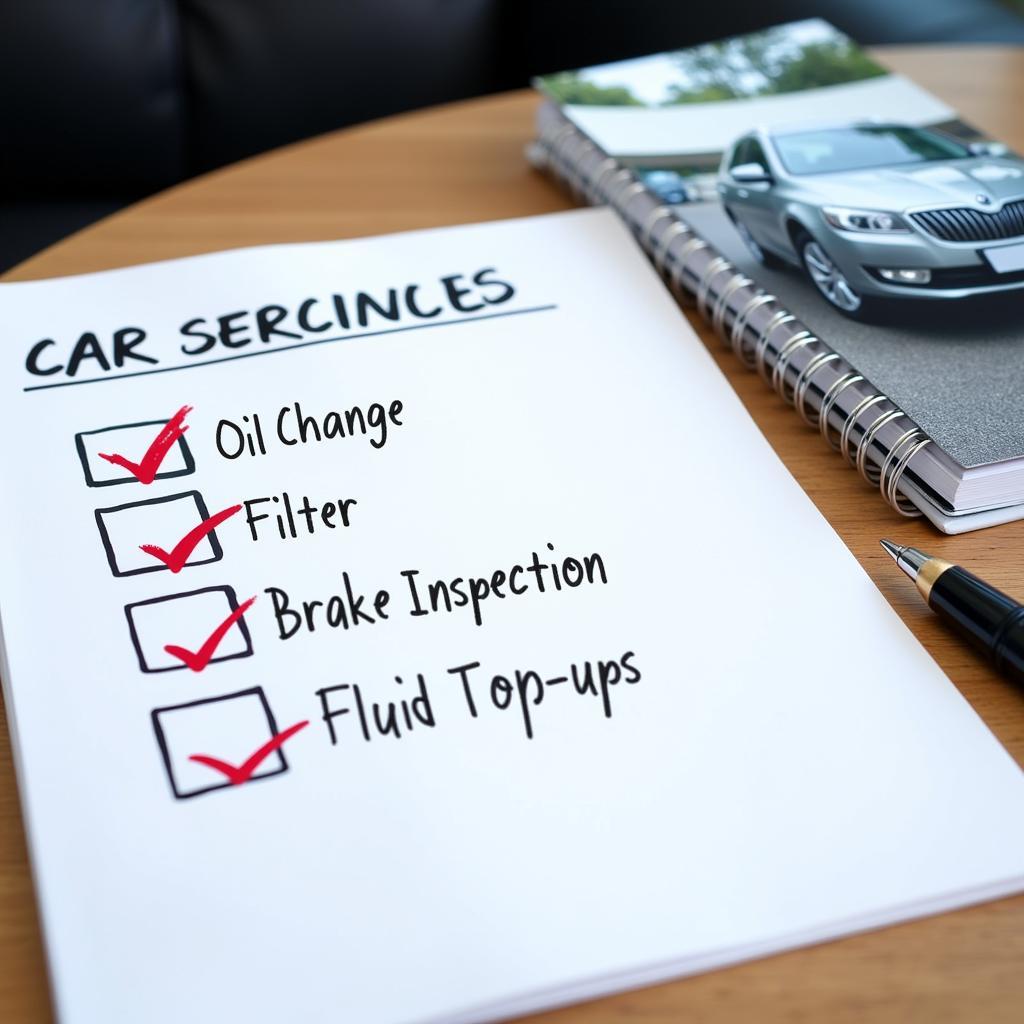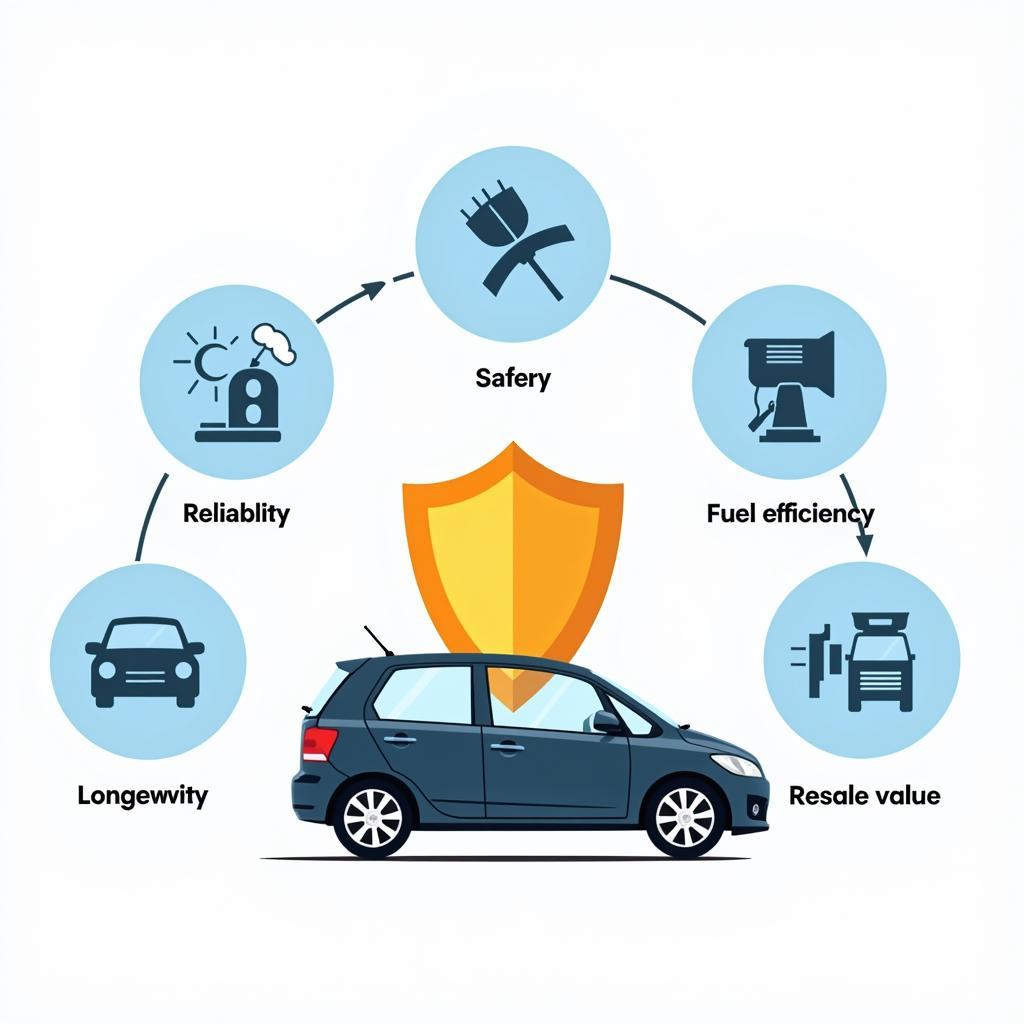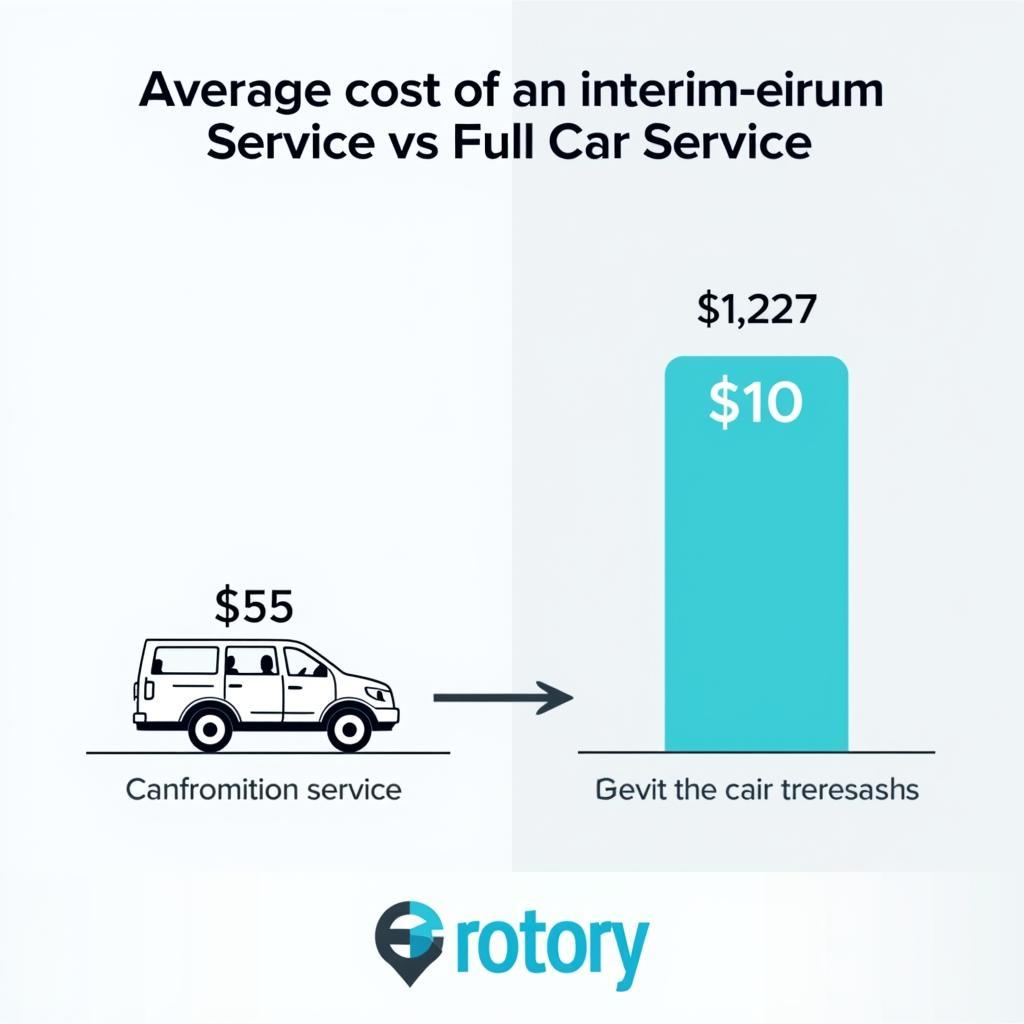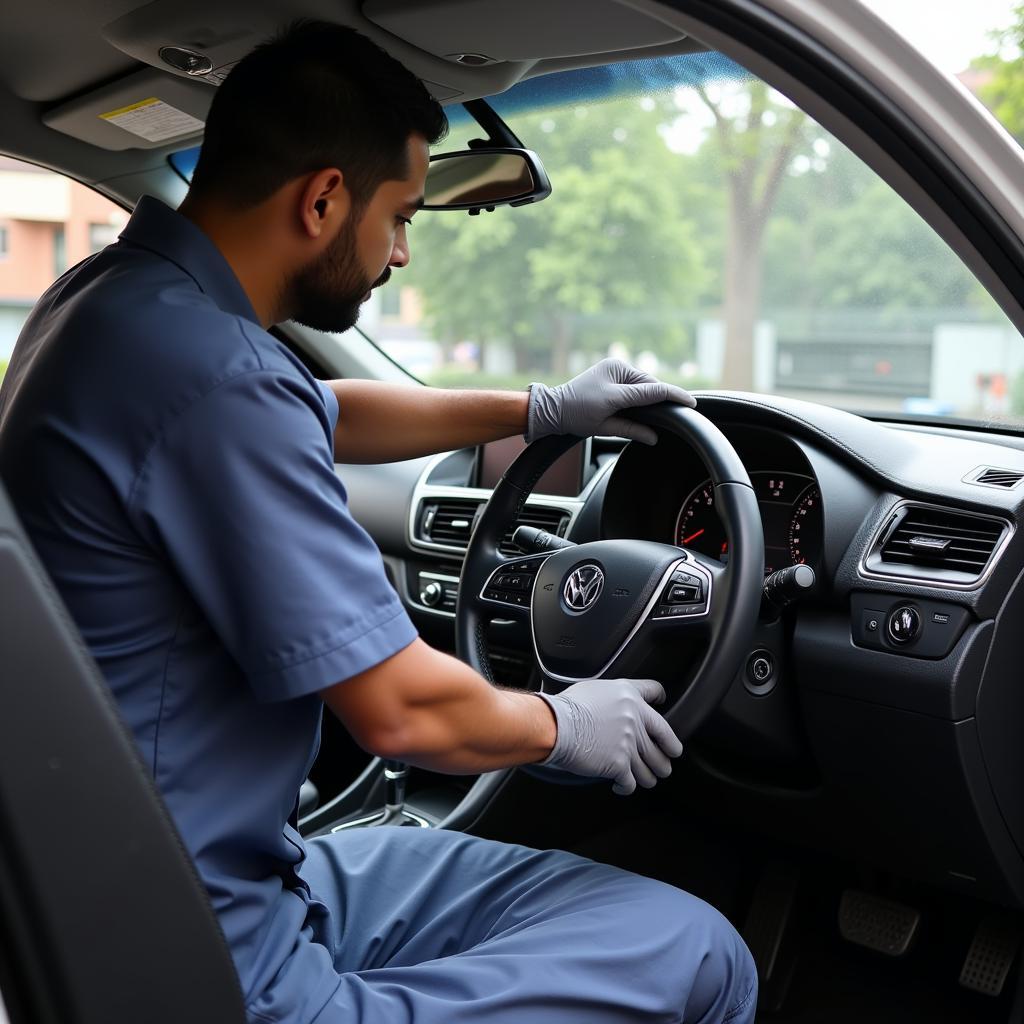What is a Service on a Car?
A car service, in its simplest form, refers to the regular maintenance procedures carried out on your vehicle to keep it running smoothly. It goes beyond just fixing things that are broken; a car service is about preventative care and ensuring your vehicle stays in top condition.
What Does a Car Service Include?
While the specific tasks involved in a car service can vary depending on factors like the make and model of your car and its age, there are some standard procedures you can expect. These typically include:
- Oil and Filter Change: This is arguably the most crucial aspect of a car service. Engine oil lubricates moving parts, reduces friction, and helps cool the engine. Over time, this oil degrades and needs replacing.
- Air Filter Replacement: The air filter ensures clean air reaches the engine for optimal combustion. A clogged air filter can lead to reduced fuel efficiency and engine performance.
- Spark Plug Check/Replacement: Spark plugs ignite the air-fuel mixture in the engine cylinders. Worn-out spark plugs can cause misfires, impacting performance and fuel economy.
- Fluid Top-Ups: Essential fluids, including coolant, brake fluid, power steering fluid, and windshield washer fluid, are checked and topped up as needed.
- Tire Pressure and Tread Check: Maintaining correct tire pressure is crucial for safety and fuel efficiency. The tire tread depth is also inspected to ensure adequate grip.
- Brake Inspection: Your car’s braking system is paramount for safety. A service typically includes inspecting brake pads and discs for wear and tear.
- Battery Check: The battery’s voltage is checked to ensure it’s strong enough to start the vehicle reliably.
- Visual Inspection: A thorough visual inspection of the car, both inside and out, is conducted to identify any potential issues like leaks, worn belts, or damaged hoses.
 Car Service Checklist
Car Service Checklist
Different Types of Car Services
You’ll often encounter different types of car services offered at garages or dealerships. Understanding the difference can help you choose the right service for your car’s needs.
- Interim Service: This is a basic service typically recommended every 6 months or 6,000 miles. It covers essential checks and replacements like oil change, fluid top-ups, and visual inspections. Read more about the difference between interim and full car service.
- Full Service: As the name suggests, this is a comprehensive service that covers everything in an Interim Service plus additional checks and replacements. It’s usually recommended annually or every 12,000 miles.
- Major Service: This is the most extensive service and is typically required every 2 years or 24,000 miles. It includes all aspects of a Full Service, along with more in-depth inspections and potential replacements of major components like the timing belt or fuel filter.
Why is a Car Service Important?
Regular car servicing offers several significant benefits:
- Safety: Ensuring your car is in optimal condition with brakes, tires, and other crucial systems functioning correctly is paramount for your safety and the safety of other road users.
- Reliability: Regular maintenance minimizes the risk of breakdowns and unexpected issues, giving you peace of mind knowing your car is dependable.
- Longevity: Consistent car servicing helps extend the lifespan of your vehicle by preventing wear and tear on essential components.
- Fuel Efficiency: A well-maintained car with properly inflated tires, a clean air filter, and a healthy engine will generally offer better fuel economy.
- Resale Value: A full service history with documented maintenance records can significantly enhance the resale value of your car when it’s time to sell or trade it in.
 Benefits of Regular Car Service
Benefits of Regular Car Service
FAQs about Car Servicing
1. How often should I service my car?
The frequency of servicing depends on your car model and your driving habits. Always refer to your car’s owner’s manual for specific recommendations. As a general guideline, an interim service every 6 months or 6,000 miles and a full service annually or every 12,000 miles is a good starting point.
2. Can I service my car myself?
While some routine tasks like checking fluid levels and tire pressure can be done at home, it’s generally recommended to have your car serviced by qualified mechanics, especially for more complex procedures.
3. What if I delay or skip a service?
Delaying or skipping car services can increase the risk of component failure, potentially leading to costly repairs down the line. It can also impact your car’s warranty coverage.
Find the Right Car Service for You
Understanding “What Is A Service On A Car” is the first step towards responsible car ownership. By prioritizing regular car services, you’re investing in your safety, your car’s longevity, and potentially saving yourself from expensive repairs in the future. Remember to always consult your owner’s manual for manufacturer recommendations and choose a reputable garage or dealership for your car’s servicing needs.
Need help finding reliable car service in your area? Contact us via WhatsApp: +1(641)206-8880, or Email: [email protected]. Our 24/7 customer support team is here to assist you!

